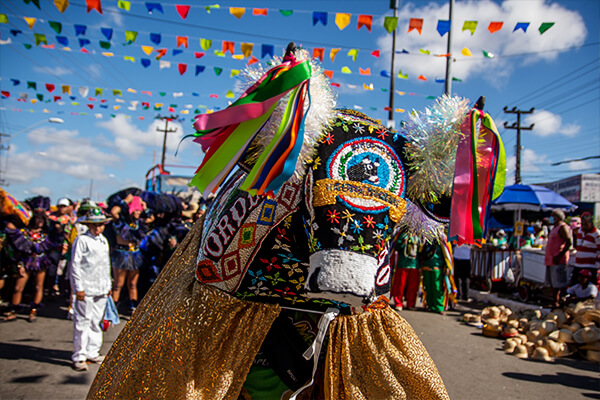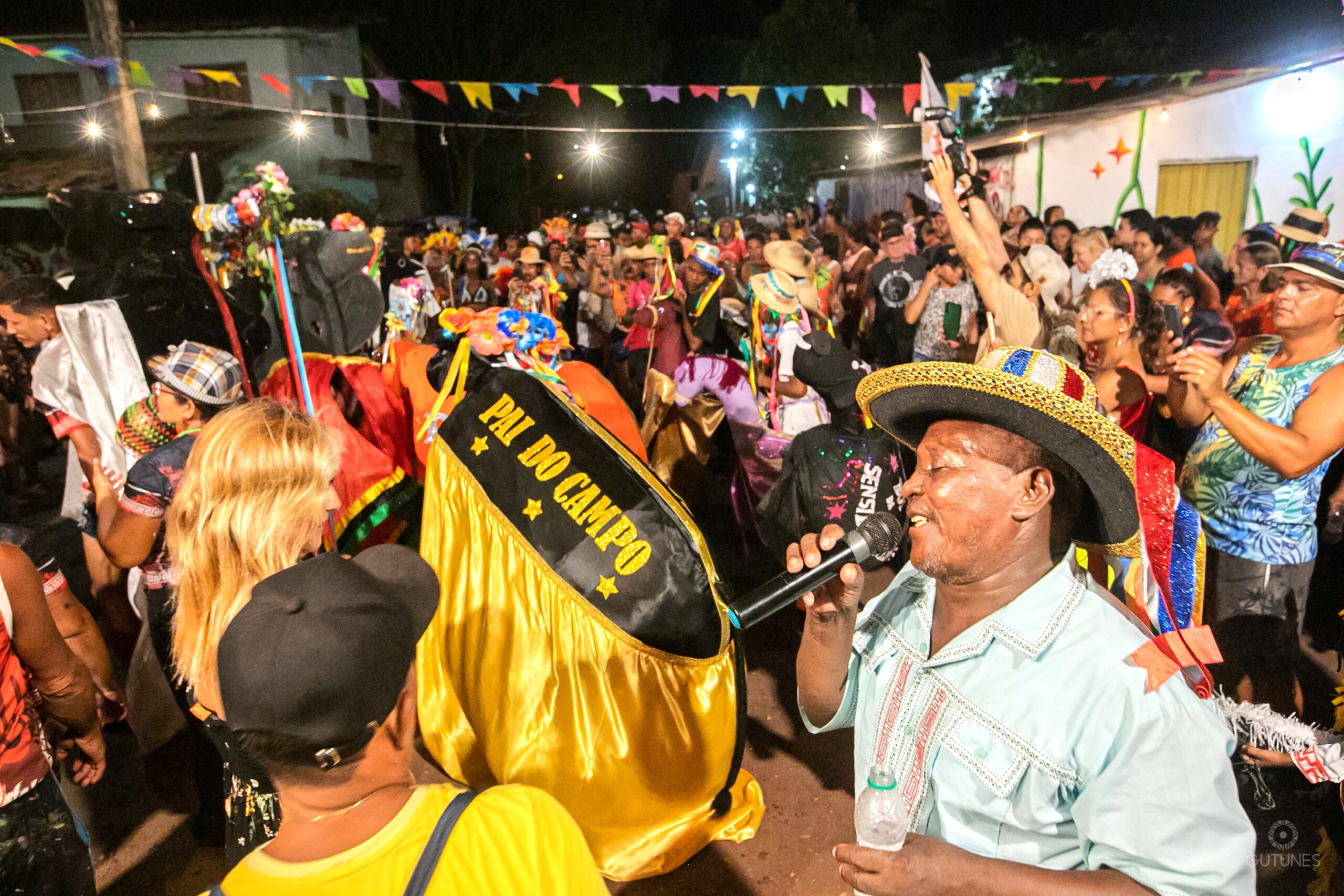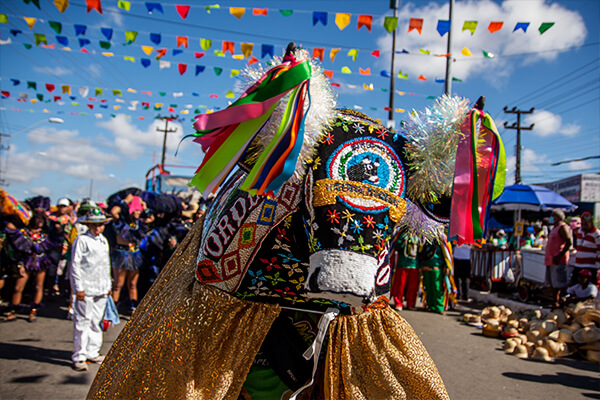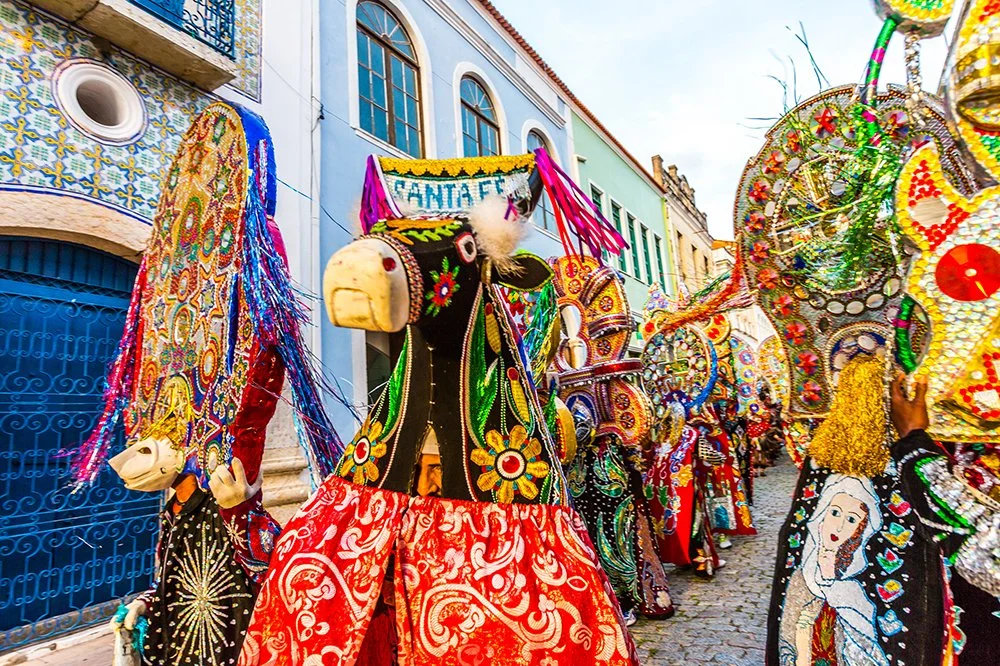
A mix of legend, music and spirituality, Bumba Meu Boi is one of Brazil’s most powerful folk festivals and a UNESCO Cultural Heritage.
Bumba Meu Boi is one of the most vibrant cultural expressions in Brazil. It originated during the colonial period and is deeply rooted in the state of Maranhão, blending music, dance, theatre, and spirituality in a unique popular performance.
More than a party, Bumba Meu Boi is the result of the fusion between Indigenous, African, and European traditions. It’s a living symbol of Brazil’s cultural diversity and creative resistance.


At the center of the narrative is Catirina, a pregnant Black woman, and her partner Pai Francisco, both working on a farm.
Craving to eat the tongue of the landowner’s favorite ox, Catirina convinces Francisco to kill the animal. When the farmer discovers the act, he demands the culprit and insists the ox be brought back to life.
Then, healers, shamans, doctors and other characters try to resurrect the ox. Miraculously, they succeed and the community celebrates through dance, drumming, and joy.
Though seemingly simple, the story holds deep meanings: transgression, punishment, forgiveness, and a powerful metaphor for social justice and collective healing.


Bumba Meu Boi is most prominent in Maranhão, but also present in states like Pará, Ceará, Amazonas and Piauí. It is an essential part of the June Festivities (Festas Juninas). Each group, known as a “sotaque” (style), has its own sound and rhythm: Zabumba – traditional, driven by powerful drums, Matraca – fast and dry percussion, Orquestra – with wind instruments and formal structure, Pindaré and Costa de Mão – specific local variations. Characters include the amo (storyteller), vaqueiros (cowboys), cazumbás (masked comic figures), and the ox itself, a handcrafted structure covered in ornate embroidered fabric. Everything is created within the community.
Bumba Meu Boi was declared an Intangible Cultural Heritage of Brazil by IPHAN in 2011, and in 2019, UNESCO recognized it as a Cultural Heritage of Humanity. Bumba Meu Boi is more than folklore, it’s a collective ritual of identity and resistance. It carries the creativity, memory, and spiritual force of Brazil’s people, still alive and dancing.